A neuromusculoskeletal hand prosthesis grants long-term stable neural control, sensory feedback, and skeletal attachment.
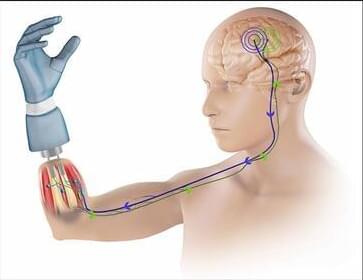

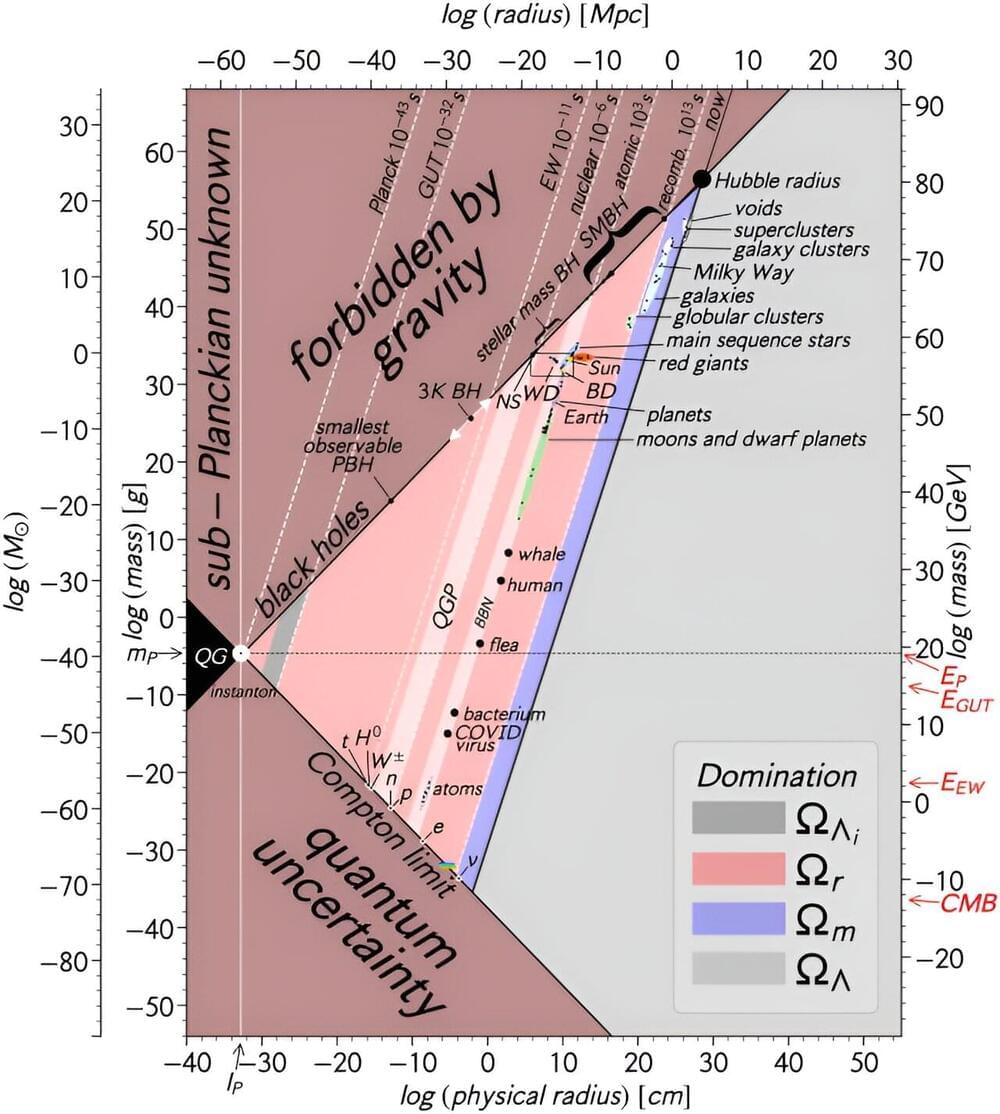
The most comprehensive view of the history of the universe ever created has been produced by researchers at The Australian National University (ANU). The study also offers new ideas about how our universe may have started.
Lead author Honorary Associate Professor Charley Lineweaver from ANU said he set out wanting to understand where all the objects in the universe came from.
“When the universe began 13.8 billion years ago in a hot big bang, there were no objects like protons, atoms, people, planets, stars or galaxies. Now the universe is full of such objects,” he said.

An international team of scientists is rethinking the basic principles of radiation physics with the aim of creating super-bright light sources. In a new study published in Nature Photonics, researchers from the Instituto Superior Técnico (IST) in Portugal, the University of Rochester, the University of California, Los Angeles, and Laboratoire d’Optique Appliquée in France proposed ways to use quasiparticles to create light sources as powerful as the most advanced ones in existence today, but much smaller.
Quasiparticles are formed by many electrons moving in sync. They can travel at any speed—even faster than light—and withstand intense forces, like those near a black hole.
“The most fascinating aspect of quasiparticles is their ability to move in ways that would be disallowed by the laws of physics governing individual particles,” says John Palastro, a senior scientist at the Laboratory for Laser Energetics, an assistant professor in the Department of Mechanical Engineering, and an associate professor at the Institute of Optics.

In an ancient hot spring haunt of Incan rulers, researchers discovered a new species of tiny, shrimp-like scavengers known as amphipods thriving at record temperatures that can cook other crustaceans to death.
Although called freshwater shrimps, amphipods are not true shrimps. Typically, they dwell in cool aquatic and semi-aquatic habitats. So Japanese and Peruvian researchers were stunned when unidentified Hyalella species showed up during a hot spring biota survey of Baños del Inca (Baths of the Inca) near the ancient Inca city of Cajamarca.
“Though the amphipod is a taxon with a great diversity of habitats, the discovery of a new species from a previously unexpected high-temperature environment is most surprising,” said study corresponding author Ko Tomikawa, professor at Hiroshima University’s (HU) Graduate School of Humanities and Social Sciences.
How do spacecraft avoid asteroid collision?
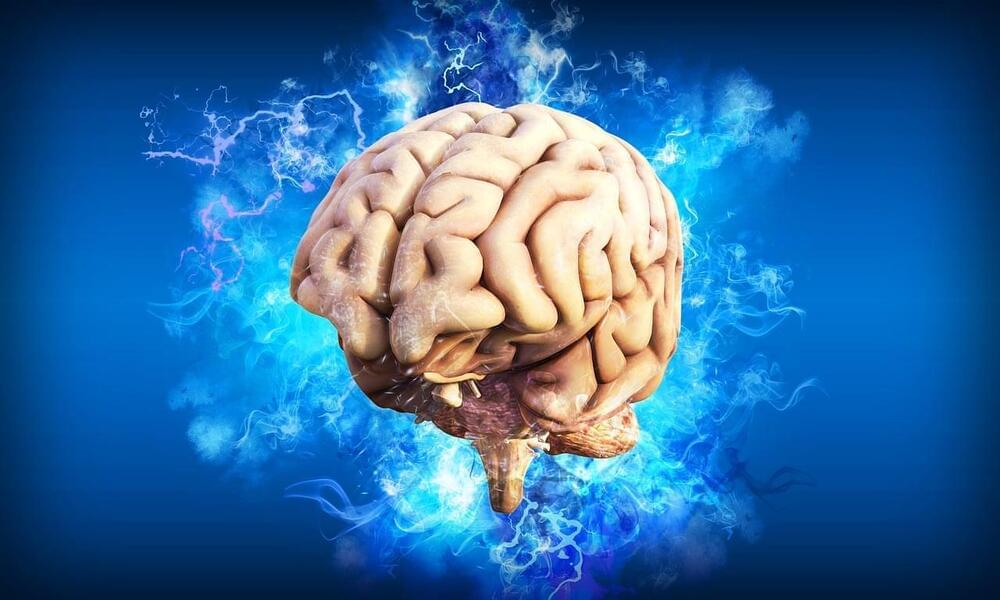
Previous research has implicated fungi in chronic neurodegenerative conditions such as Alzheimer’s disease, but there is limited understanding of how these common microbes could be involved in the development of these conditions.
Working with animal models, researchers at Baylor College of Medicine and collaborating institutions discovered how the fungus Candida albicans enters the brain, activates two separate mechanisms in brain cells that promote its clearance, and, important for the understanding of Alzheimer’s disease development, generates amyloid beta (Ab)-like peptides, toxic protein fragments from the amyloid precursor protein that are considered to be at the center of the development of Alzheimer’s disease. The study appears in the journal Cell Reports.
“Our lab has years of experience studying fungi, so we embarked on the study of the connection between C. albicans and Alzheimer’s disease in animal models,” said corresponding author Dr. David Corry, Fulbright Endowed Chair in Pathology and professor of pathology and immunology and medicine at Baylor. He also is a member of Baylor’s Dan L Duncan Comprehensive Cancer Center. “In 2019, we reported that C. albicans does get into the brain where it produces changes that are very similar to what is seen in Alzheimer’s disease. The current study extends that work to understand the molecular mechanisms.”
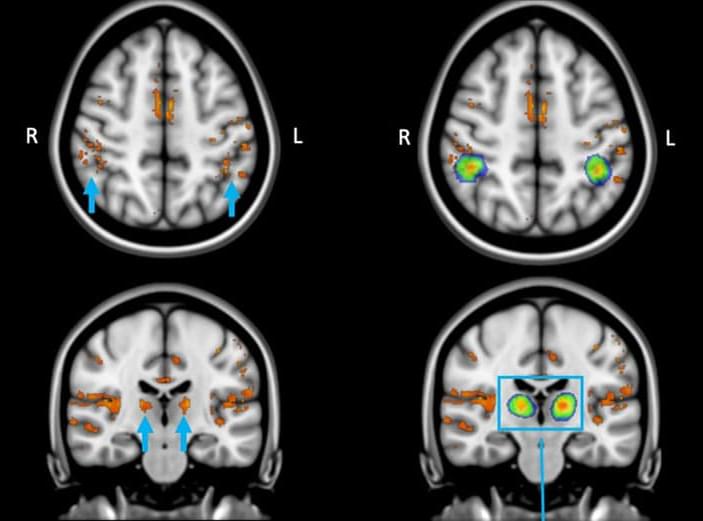
Light is critical for transmitting visual information to the brain; but light also impacts non-visual processes in the body, such as circadian rhythms, hormone secretion, pupil size and sleep cycles, for example. Exposure to blue light is known to stimulate alertness and enhance cognitive performance, but the neural processes underlying this effect are not well understood. Now, researchers at the University of Liège in Belgium have used ultrahigh-field MRI to find out more about how light stimulates our brains, reporting their findings in Communications Biology.
Non-visual responses to light are mainly mediated by photosensitive retinal ganglion cells that express melanopsin, a photopigment that’s most sensitive to blue light at around 480 nm. These retinal neurons transfer light information to several areas of the brain associated with light-mediated behaviour. In particular, the pulvinar (a region of the posterior thalamus involved in attention control) is consistently activated in response to light, suggesting that the thalamus, a subcortical region, may play a key role in relaying non-visual light information to the cortex.
To investigate this hypothesis, first author Ilenia Paparella and colleagues in the GIGA-CRC laboratory used 7T functional MRI to record the brain activity of 19 healthy young participants while they completed an auditory oddball task known to elicit response in the posterior thalamus. During the task, in which random rare deviant tones were sounded amongst frequent standard tones, the volunteers were either in darkness or exposed to 30 s blocks of blue-enriched polychromatic or control orange light.

Rumors of Agi 2025 runnin wild.
Screen Cap It!
Late last year, around the time ChatGPT became a global sensation, the engineers at OpenAI began working on a new artificial intelligence model, codenamed Arrakis.
Although OpenAI was preparing to boost ChatGPT with a different model, now known as GPT-4, which it had completed earlier in the year, the upcoming Arrakis model would allow the company to run the chatbot less expensively. Success with Arrakis would also help OpenAI show Microsoft how fast it could create successive large language models, which would be valuable as the two firms finished negotiating a $10 billion investment and product deal.
But by the middle of 2023, OpenAI had scrapped the Arrakis launch after the model didn’t run as efficiently as the company expected, according to people with knowledge of the situation.

Summary: Scientists have successfully determined the genomic composition of octopuses, unveiling a whopping 2.8 billion base pairs across 30 chromosomes. This was a result of comprehensive, computer-assisted genome studies and comparisons with other cephalopod species.
This high-quality reference sequence paves the way for understanding octopus biology and tracing its evolutionary trajectory.
The findings, which shine a light on the dynamic evolutionary history of the octopus genome, will enrich research in neurobiology, behavior, and development.
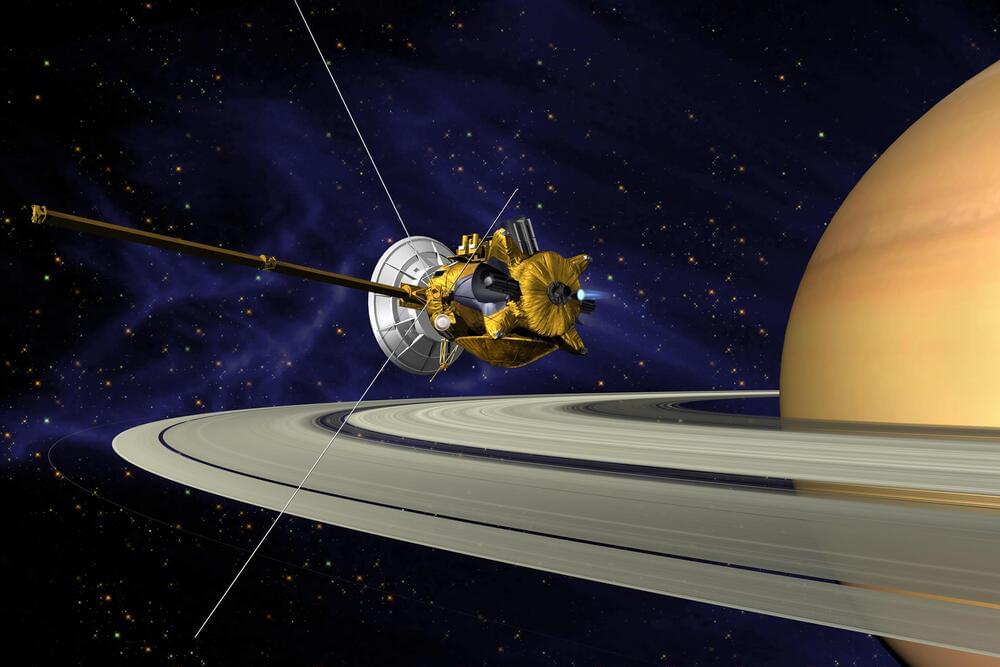
Eventually, maybe by the early 2040s, would like to see every large body in solar system, from the Sun out to Pluto to have a probe like the Cassini probe in a permanent orbit around it. So we have 24/7 live feed / study of all of them. And, ASI could run all of it by that point.
Launch and mission info for NASA’s mission exploring Saturn and its system of moons.